
|
$5
When You're FoodA Fighter's View of Predatory Aggression 
Engaging urban survival guide, brutal oral history and outrageous memoir, this disturbing book makes the case that civilization is a lie, human society is essentially cannibalistic, and you are on the menu. If you like Harm City you will love this; it's LaFond at his most politically incorrect. 
Boris Broheam I met James LaFond two months before 9/11. That’s a while ago. I walked with my new girlfriend at the time down to Light Street in South Baltimore to visit this guy. One can imagine how I felt near the end of reading When You’re Food about an interracial beat down, described by James as a ‘Messerschmitt attack on unescorted B-17s’, that occurred on that same street. I should have been shot for putting my girlfriend in jeopardy by being anywhere near that geographical location. Then again, she and I walked in our hometown on streets where the same thing has happened at one time or another. Every day is a chance to be prey, no matter who or where you are.
This is the theme of When You’re Food…probably the most potentially offensive and bleak book ever to fall under the genre of “self-defense/martial arts”. It’s awesome! The “how to” section to let middleclass/middle-aged white guys think they have a chance is relegated to a single paragraph. Said paragraph discusses the merits of Bic pens versus Papermate pens for stabbing muscular black men in the throat and fat white trash in the ribs. This is all you get regarding the physical aspects of such events—yeah your tactical knife will save you…
Whiney accusations [What other kind are there?] of racism are simpleminded, as James berates and looks down on his fellow Indo-Europeans even more than on the African derived assailants that rule “Harm City”. He merely relates story after story of violence in the raw. His writing style is engaging as always and humorous. This stuff should be bleak, but I found myself chuckling time after time. This is one of James’ strengths: horrifying stuff that makes you laugh. I suppose context is everything—forget about hipsters reading this.
Some highlights are what occurred at a Job Corps program between Washington D.C. and Baltimore groups of black youths; a disgusting hours-long assault of a small woman that will make you want to kill someone if you have testicles—or even if you don’t; and a hilarious NRA approved confrontation on a front lawn. Time and time again the theme of overwhelming disparity of force is on display. Probably the most important observation is the high level of brutality a larger group will use to attack a smaller group, a microcosm of ongoing wars between tribes, kingdoms and nation-states.
As usual, the police are the useless stooges they have so often been. If I may indulge in a small digression, the triumph of Democratic Socialism is on full display as human predatory primate reality is enabled by both social engineering and bureaucracy, with the neo-slaves condemned to a life of intergenerational brutality by elites who have never dealt with nor encountered them and the petty middle-class of varying income levels left to be victimized, ripped off, and ultimately blamed for the results, all the while giving the State their money, a State that does not protect them in turn.
James’ first book spoke to me as an angry confused young man. He was not an ass-kicking machine, took public transportation and was the only author in the field to address the racial nuances of urban violence. When You’re Food is his masterpiece and, as publishing goes the way of the music industry [and hopefully the Post Office] I believe that the e-book/online publishing revolution will allow this work to garner a far wider audience than previously possible.
Good job James! Get a friggin’ car already!
Boris, Broheam March 1st 2012
Prof. David Carl James LaFond’s When You’re Food is a gripping examination of the roiling violence that thrives behind the mask of societal convention and the veneer of law and order that tries to protect us from it—tries to protect us not only from the physical effects of violence on our bodies, but from the psychological effects of trying to deal personally with the prevalence of violence that surrounds us. The truths he reveals sheds light not only on those aspects of society we often try to ignore outside of the safe confines of Hollywood, but also on aspects of human nature that are real despite our attempts to deny, repress, or control them.
It’s no coincidence that LaFond opens his book with a passage from the Epic of Gilgamesh, the oldest written work in Western literature. By doing so he acknowledges the timeless quality of the violence he is writing about. However much we might like to hide or hope that society’s forces will protect us, the presence of violence is as real, immediate and undeniable in our lives today as it was when Gilgamesh was inscribed on clay tablets 3000 years ago. It is as old as the struggle between Cain and Able.
But despite the timeless historic and sociological interest of his subject matter, LaFond writes with vivid detail and gripping immediacy. The author knows how to tell a story, and to draw his reader in with insightful and exciting accounts of a side of life most readers protect themselves from having to confront or acknowledge. But denial does not render the truth of these details obsolete; it just removes us a safe distance from them. LaFond reminds us just how quickly, and definitively, this distance can be bridged at any moment. Walking to work one evening, returning to our car in a parking lot after a movie, coming home from a restaurant—even opening your front door when the doorbell rings: any of these seemingly innocent activities can be an occasion for the kind of violence LaFond tears the mask from in When You’re Food.
Within the first few pages LaFond has grabbed the reader with his narrative flare. And he has revealed the philosophical underpinnings of his study which make his book more than just another series of suspenseful (or repulsive) stories about violence. Why are we so fascinated by the violence that surrounds and terrifies us? Why are some of us predators and others prey? What are the social and psychological effects of the physical phenomena of one body inflicting pain and damage on another body? LaFond explores these questions through real-life scenarios, many of them personal, others based on interviews with a fascinating array of human beings he has encountered, confronted, and talked to in a way that few of us will ever have the opportunity to engage our fellow man in.
LaFond offers us a basic truth: “We are all somewhere on a given food chain.” We see the contours of that chain in a dozen settings and scenarios every day: at work, at our favorite bar, on the sports field and in the conference room, in business, play and love. But LaFond tests the chain and its strongest and most basic link: the predation instinct for physical violence. When he invites us to contemplate the “insights and ugliness” of his book, he’s not pulling any punches.
“When you have been singled out as prey, what hunger have you been designated to feed?” A profound question. LaFond exposes the many forms of hunger we carry about with us as he investigates the way that predatorial violence is used by some against others to try and feed those hungers. Not always hunger for food, but also for power, for money, for recognition, for acknowledgement of one’s superiority.
Violence may be a stark physical reality, but LaFond realizes, and vividly illustrates, the philosophical implications of being a body subject to other bodies in the world. “Our physical autonomy is at the core of our sense of freedom, even our individuality,” LaFond observes. This is why the subject matter of his book should be of such intimate importance to each of us: anyone who threatens us with violence threatens our freedom and our sense of self. The stories LaFond tells are gripping and they’re instructional. They have something to tell us about ourselves, about the world we live in, and about the people we share it with. For better or worse.
David Carl, St. John’s College, 2012  eBook? What exactly am I buying?
 You're buying a .pdf computer file, a trusted and popular format for digital content.
You're buying a .pdf computer file, a trusted and popular format for digital content. [Adobe] [Wikipedia: Portable Document Format] How do I read/open it?
By 2020 most modern devices have a built-in method for handling these files.
If you require software, there is plenty of free apps/programs to read PDFs with. PC users try
Foxit or
Sumatra.
Mac users try Skim. Unix/Linux users, you know what to do. Apple iPhone users → Apple Store. Android → Playstore.
Do you take wampum or bitcoin?
No. But our payment processor accepts all major credit cards.
How will I receive the book?
The store uses an automated delivery system. After the Stripe transaction completes, our server will send you an email containing a link to download your book. We use the email provided during the Stripe checkout.
WHERE'S MY EMAIL !?!?
Most of our emails go through. However, some folks' mail providers will block the content thinking it is spam (some of James' titles are buzz words for internet filters). If after a few minutes you haven't received anything, EMAIL US at <store@123jameslafond.com> and we will resolve delivery. Satisfaction Guaranteed.
When I click on my product link, nothing happens, or a tab opens/disappears. Help!
Occasionally your mail provider will refuse to pop-open email links from 'untrusted' sources. Two workarounds in Windows: [Right-Click] + [Save-Link-As] or you can try [Right-Click] + [Open-In-New-Tab]. If you are using a cellular device, try navigating to your Downloads directory and searching for the file there. If you have no luck, drop us a line at <store@123jameslafond.com> and we can send the book as an attachment in an email. Works every time.
Will book(s) be available for downloading/viewing indefinitely?
No. The store encourages you to download your eBooks once you receive them. This way, any future misfortunes with our website will not impact your purchase.
Yesterday I bought a book. Today it's been upgraded / rolled into an anthology. I feel cheated.
Let us know. We'll make it right. Because of the mass of Jim's writing and our ever-fledgling efforts to publish it, we are now finding it necessary to bundle older and like-themed store titles, to keep room and stay organized. Moving forward, expect more and more bundles. We appreciate your understanding.
|


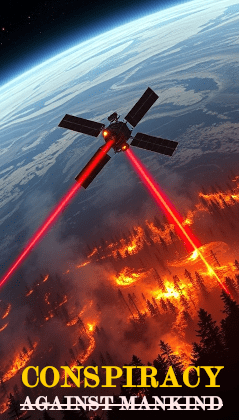
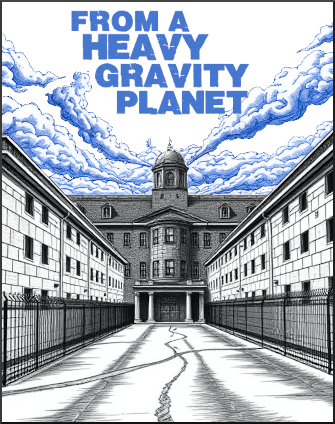

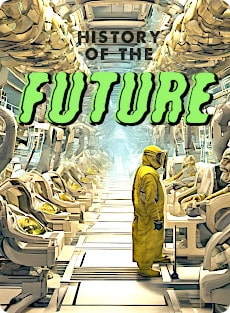 


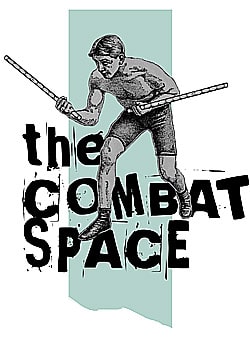
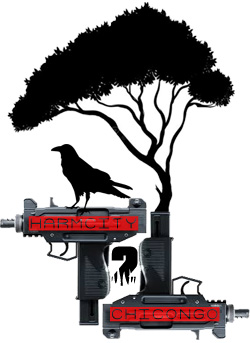
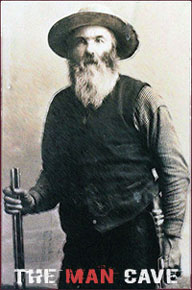
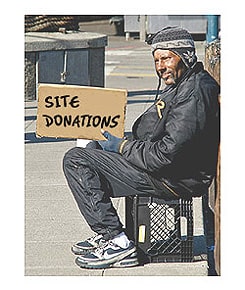
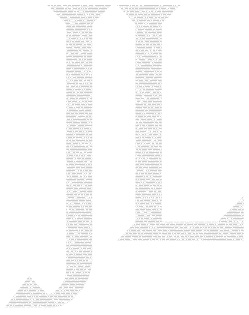
|

